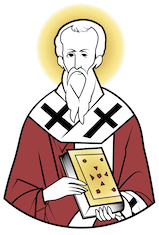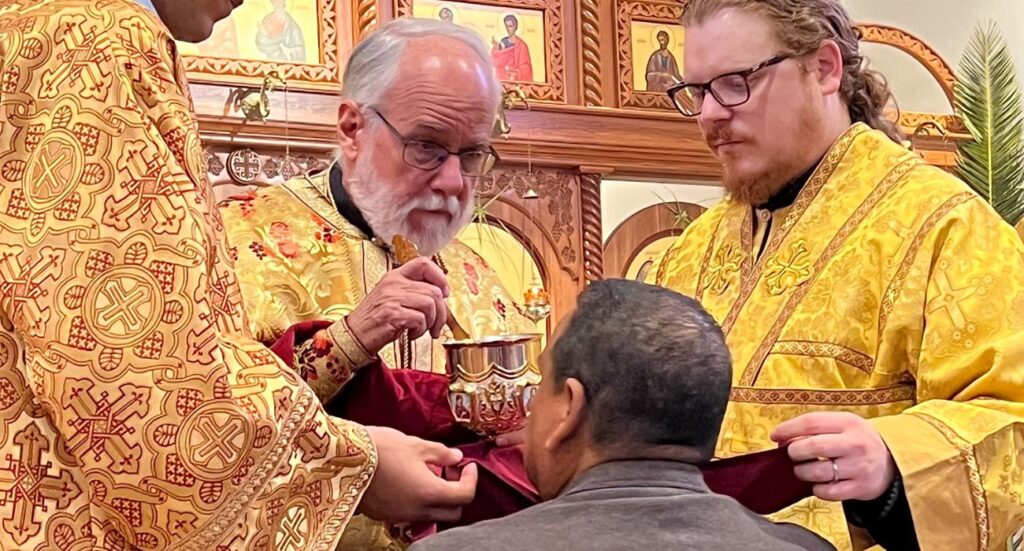Weekly Services
Orthros (Matins)
Sunday 9am
Divine Liturgy
Sunday 10am
Great Vespers
Saturday 6pm
About Our Services
Central to our lives as Orthodox Christians are the Cycle of Services. Through the services and the Sacraments administered in and through them, we are healed and filled with the Grace of The Holy Spirit.
A normal weekly cycle involves Great Vespers on Saturday evening, and Orthros and the Divine Liturgy on Sunday morning. Other services are prescribed throughout the year, but these services are the backbone and foundation of the Orthodox worship experience.
See our calendar for additional services this month
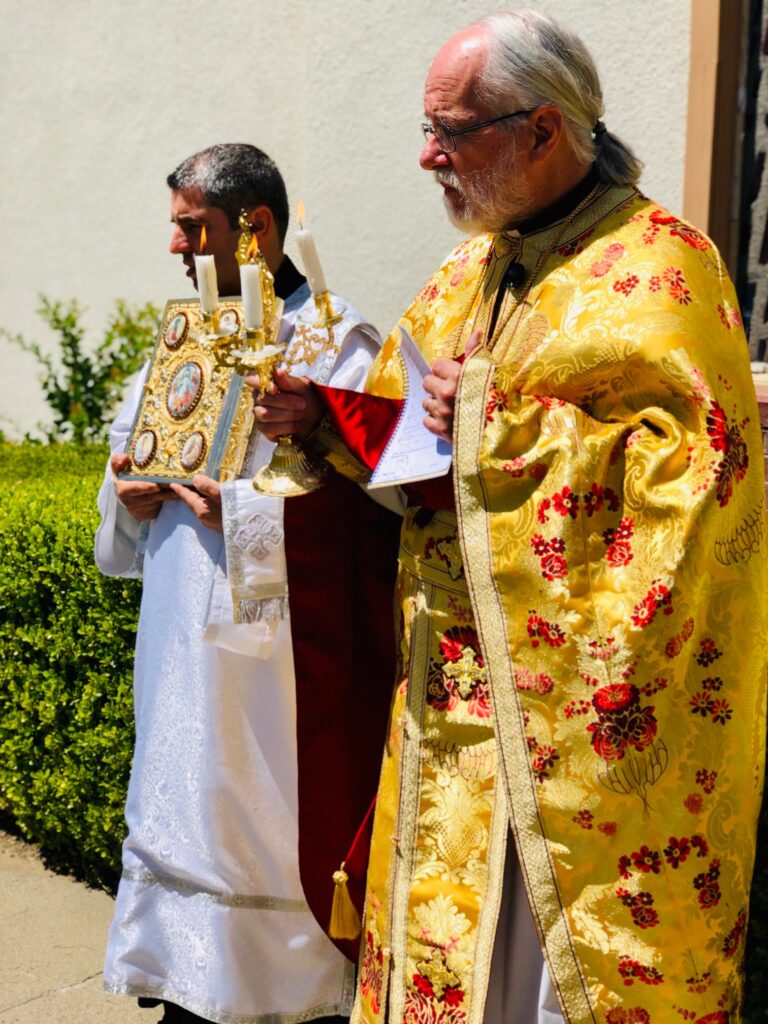
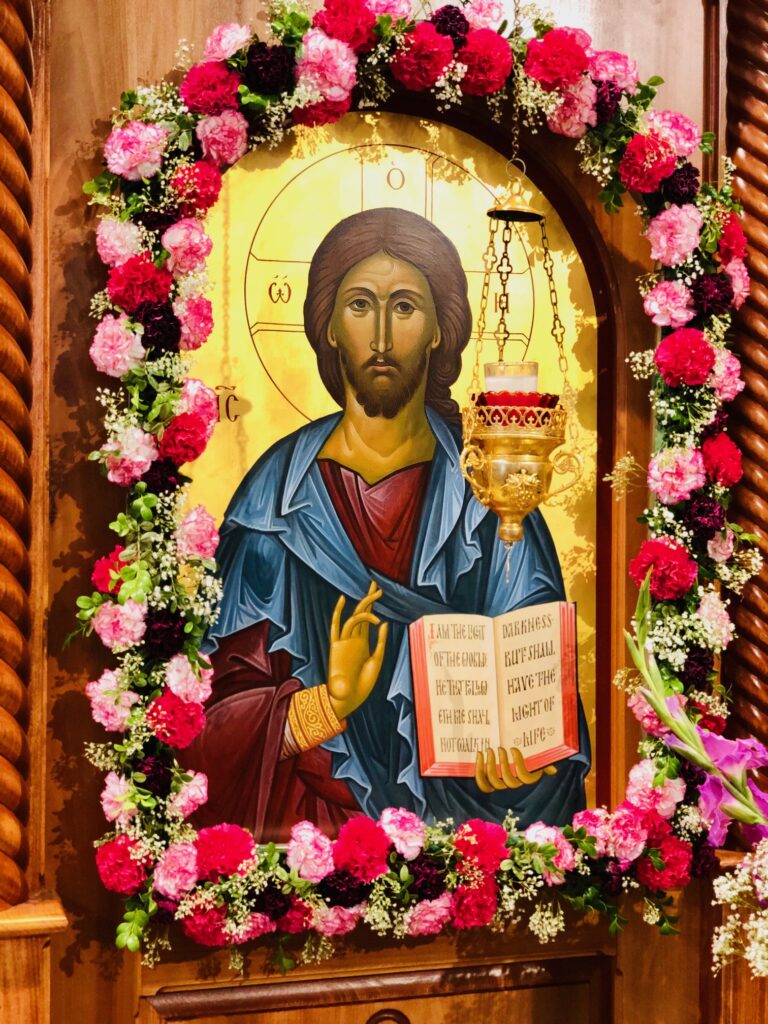
Vespers
Vespers, or Great Vespers if it is sung on Saturday evening, is the beginning of the weekend liturgical cycle. We celebrate Vespers at the “setting of the sun”, following the Old Testament practice of treating the evening as the beginning of the day. (Genesis 1:5)
The Vespers service is meant to remind us of the Old Testament period, the creation of the world, the first human beings fall into sin, of their expulsion from Paradise, their repentance and prayer for salvation, the hope of mankind in accordance with the promise of God for a Savior and ending with the fulfillment of that promise.
Orthros (Matins)
Meaning “early dawn” or “daybreak” Orthros is celebrated immediately preceding the Divine Liturgy. Comprised of petitions, readings of the Psalms, and hymns; it can be thought of as the “beginning” prayers of the Divine Liturgy.
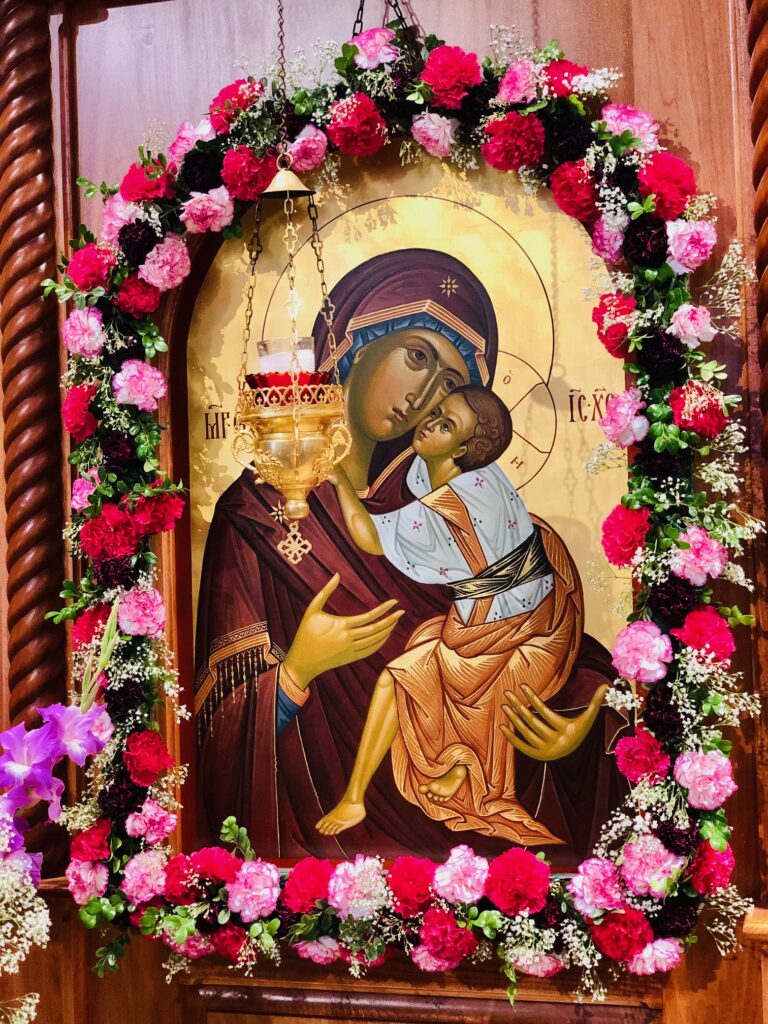
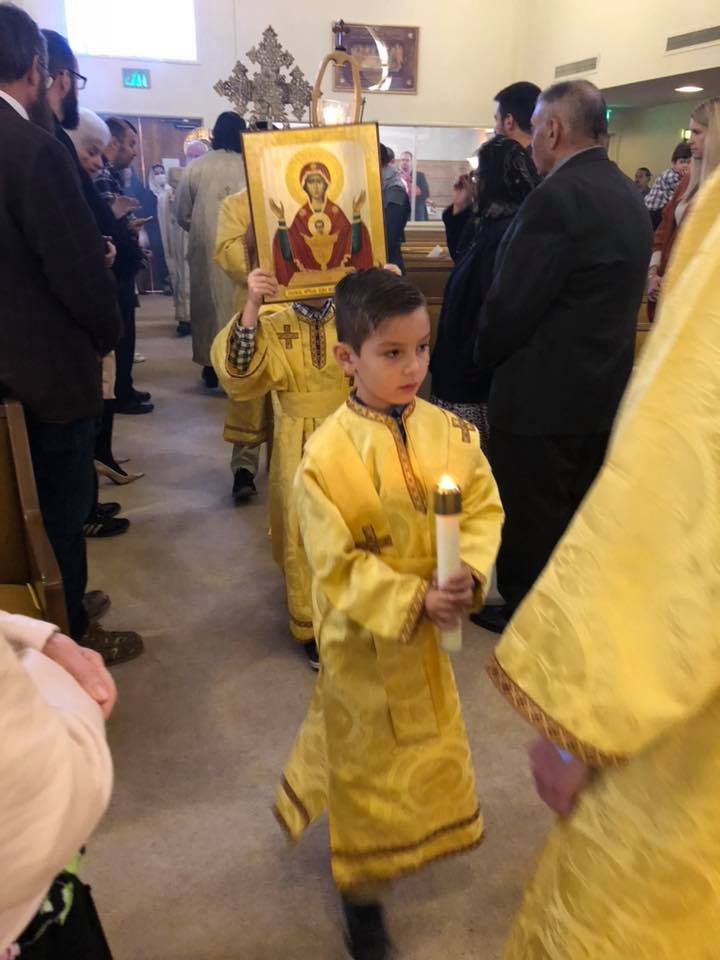
The Divine Liturgy
The Divine Liturgy is the primary worship service of the Church. The most commonly celebrated forms of the Divine Liturgy are the Liturgy of St. John Chrysostom, the Liturgy of St. Basil, and the Liturgy of the Presanctified Gifts.
The Divine Liturgy is a eucharistic service. It contains two parts: the Liturgy of the Catechumens, sometimes called the Liturgy of the Word, at which the Scriptures are proclaimed and expounded; and the Liturgy of the Faithful, sometimes called the Liturgy of the Eucharist, in which the gifts of bread and wine are offered and consecrated.
The Church teaches that the gifts truly become the body and blood of Jesus Christ, but it has never dogmatized a particular formula for describing this transformation.
